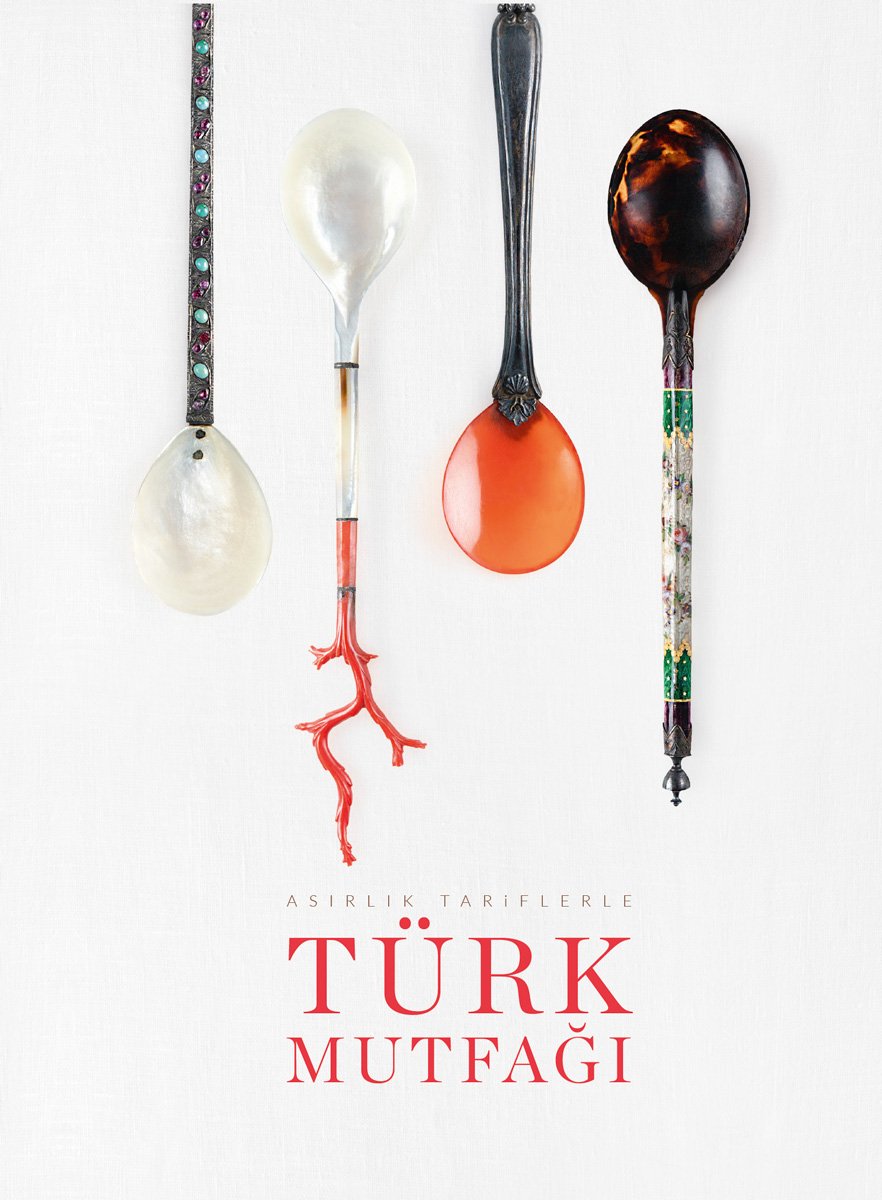




Turkish Cuisine with Timeless Recipes
Turkish Cuisine With Timeless Recipes (Asırlık Tariflerle Türk Mutfağı) is the gastronomy book published under the leadership of First Lady Emine Erdoğan and under the auspices of the Presidency, in cooperation with the Türkiye Tourism Promotion and Development Agency (TGA) with the support of the Ministry of Culture and Tourism, Aimed at promoting the richness of Turkish cuisine to a global audience and featuring contributions from prominent chefs, academics and experts, Turkish Cuisine With Timeless Recipes draws attention to the famous Turkish cuisine and its waste-free, ecological and sustainable characteristics.
In addition to discussing the healthy storage and cooking techniques used in Turkish gastronomy, the book is intended to record centuries-old traditional recipes in their original form, and make them accessible to future generations.
Published in Turkish and English, the book presents two hundred and eighteen recipes for healthy and alternative diets, including recipes for waste-free, fermented, regional, local and gluten-free dishes.
Our cuisine represents our cultural identity. Not only what we eat, but also what we do not eat defines our cultural identity. As such, food carries much more meaning than merely being the basic biological and nutritional requirements for human survival. Each morsel of food not only includes nutritional values but also conveys history, culture, faith and experiences. In fact, the simplest way to introduce yourself to a foreigner is introducing them to your cuisine.
Turkish cuisine, combined with historical experiences is a vast treasure, a journey that dates back centuries. Throughout this journey, our cuisine has been enriched by various cultures. This diversity alone can be attributed to the secrets of this vast geography. This diversity, that testifies that our country is a land of peace and tolerance, also contains spirited anecdotes that sharing and unity between the different cultures, religions and ethnic groups continues to this day.
In addition to all these factors, Turkish cuisine is also a reflection of our national character. Our dining tables that have become a symbol of the spirit of sharing and solidarity are the essence of our character. To date, dining tables have been one of the most powerful forms of communication, the means of connecting, bringing people together. Dining tables that act as an intermediary for humanity, hospitality and generosity also convey our ancient family culture.
Every aspect of our lives and experiences are reflected at dining tables. Dining tables prepared during festivals, weddings and even funerals not only inspire us, but also bring people closer together, thus alleviating hardships. In view of this, as the modern world and current conditions have forced people into a more isolated life, I believe the culture of Turkish cuisine, an art in itself, will be beneficial for everyone.
Another important characteristic of Turkish cuisine is that it creates a delicate balance between the body, soul and life. For example, when someone says, “To your good health” when they are eating, this indicates that the main purpose of eating is being healthy. Owing to this widespread culture, foods that have curative qualities are widely recognized. Recipes for meals that heal the sick, restore the weak and soothe the soul were handed down from generation to generation. In this respect, Turkish cuisine is like an antidote against the destructiveness of industrialized food that gives temporary pleasure, but also eliminates the traditions of food culture.
Unfortunately, the fast food culture of today is the cause of many preventable illnesses. However, recent efforts we observe all around the world to return to traditional cuisines herald a global re-awakening.
Particularly during my travels abroad, I have become more aware that Turkish cuisine is not sufficiently or duly recognized. Kebab and baklava that are globally recognized are considered the foundation of our cuisine. Whereas, I believe that our cuisine, which challenges the fast food culture and totally corresponds with the rising gastronomic trends around the world, should be known by everyone. In view of this, we prepared this cookbook in collaboration with our country’s renowned Turkish chefs, and leading gastronomy and history researchers.
In this book, we not only included recipes, but we also shared valuable information ranging from the methods of cooking to preserving food for a healthy cuisine. We shared the secret of how to naturally prepare nutritious pickled vegetables and vinegars that also have healing qualities. We also explain how leftover ingredients can be used for other dishes, thus sharing the abundance of a no-waste kitchen. The grains, fruits and vegetables grown here together with farming and harvesting methods are an extremely valuable asset. Including all of these in this book was a humble step towards highlighting and emphasizing the healthy, zero waste and traditional character of Turkish cuisine. I believe this invitation to our dining tables that are not only appetizing, but also full of wisdom will contribute significantly on the journey on returning to basics in the world.
I hope that these recipes that have brought delight to our dining tables for centuries will be a source of health and pleasure to the entire world.


